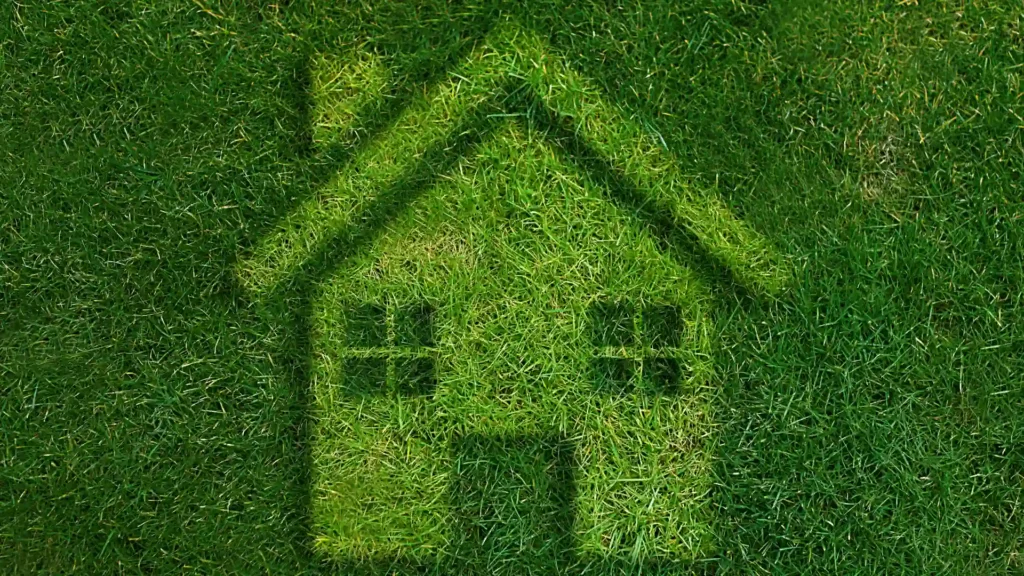
As concerns over climate change and sustainability continue to rise, more homeowners are turning to eco-friendly solutions for their homes. The demand for green homes—houses designed and built with energy efficiency, resource conservation, and environmental impact in mind—is growing rapidly. This shift is influencing the home services industry, where businesses are adapting to meet the needs of eco-conscious consumers. The integration of sustainable practices into home maintenance, construction, and renovation services has led to a surge in eco-friendly offerings that not only benefit the environment but also provide homeowners with long-term cost savings.
1. The Growing Popularity of Sustainable Building Materials
One of the most significant trends in the home industry is the increased demand for sustainable building materials. Homeowners are increasingly opting for materials that are renewable, recyclable, and non-toxic. According to a report by the U.S. Green Building Council, nearly 40% of the world’s carbon emissions come from buildings, which has led to a push for more sustainable construction practices.
Eco-friendly materials such as bamboo, reclaimed wood, recycled steel, and low-VOC (volatile organic compound) paints are gaining traction in the building and remodeling sectors. These materials are not only better for the environment but also contribute to healthier indoor air quality, a growing concern for homeowners. Companies specializing in home improvement are now offering these green materials as part of their renovation services.
For instance, when remodeling kitchens or bathrooms, many homeowners are choosing energy-efficient appliances and sustainable countertops made from recycled materials. Plumbing companies are also adopting eco-friendly practices, offering low-flow fixtures and water-efficient systems to conserve water. This shift is helping reduce the environmental impact of residential buildings, while also promoting healthier living spaces.
2. Energy-Efficient Homes: The Demand for Renewable Energy Solutions
The need for energy efficiency in homes is one of the most significant drivers of the green home movement. With rising energy costs and an increased focus on reducing carbon footprints, more homeowners are opting for renewable energy solutions such as solar panels, geothermal heating, and wind power.
According to the Solar Energy Industries Association (SEIA), solar power capacity in the U.S. has increased dramatically over the past decade, with solar installations growing by more than 40% in 2023 alone. The demand for solar panel installation services has surged as homeowners seek to reduce their reliance on fossil fuels and lower their utility bills. Additionally, advancements in solar technology, such as improved battery storage systems, have made solar energy more accessible and affordable for homeowners.
Green home services are now extending beyond solar installations. HVAC companies are offering energy-efficient systems that reduce the amount of energy needed for heating and cooling, further lowering utility costs. Homeowners are also investing in insulation and smart thermostats that optimize energy use. The adoption of such technologies is helping reduce overall energy consumption, contributing to a more sustainable home environment.
3. Water Conservation: Sustainable Landscaping and Plumbing Solutions
Water conservation is another area where the demand for eco-friendly services is on the rise. According to the Environmental Protection Agency (EPA), the average American household uses approximately 300 gallons of water per day, with a significant portion of that being used for landscaping. As climate change exacerbates water scarcity in many regions, homeowners are increasingly seeking ways to conserve water while maintaining attractive outdoor spaces.
Sustainable landscaping practices, such as xeriscaping (landscaping with drought-resistant plants) and the use of permeable materials for driveways and walkways, are becoming more popular. Landscaping businesses are also offering water-efficient irrigation systems that reduce water waste by delivering the right amount of water directly to the roots of plants. Additionally, companies are promoting rainwater harvesting systems that collect and store rainwater for use in irrigation, helping homeowners further reduce their water consumption.
Eco-friendly plumbing solutions are also gaining popularity, with plumbers offering services such as installing low-flow faucets, showerheads, and toilets. These products can significantly reduce water usage without sacrificing performance. Home service providers are also helping homeowners with leak detection and repairs, which can prevent water waste and reduce water bills.
4. The Role of Energy-Efficient Appliances in Green Homes
Energy-efficient appliances are an essential component of any green home. The U.S. Department of Energy estimates that household appliances account for about 13% of the total energy consumption in American homes. As a result, many homeowners are opting for appliances that carry the ENERGY STAR label, a certification that indicates they meet strict energy efficiency standards set by the U.S. government.
Home service businesses are responding to this trend by offering installation and maintenance services for these energy-efficient appliances. Electricians, HVAC technicians, and appliance repair services are all becoming more focused on energy-saving solutions. For example, HVAC companies may offer installations of energy-efficient air conditioning units and heating systems, while appliance repair technicians may focus on repairing and maintaining ENERGY STAR-rated refrigerators, washers, and dryers.
In addition to reducing energy consumption, these appliances also offer long-term savings by lowering utility bills. As the cost of energy continues to rise, the demand for energy-efficient appliances is expected to grow, further driving the shift toward green homes.
5. Green Home Certifications: The Growing Demand for Eco-Friendly Standards
As more homeowners seek sustainable solutions, the demand for green home certifications is also increasing. Programs such as LEED (Leadership in Energy and Environmental Design) and Energy Star provide homeowners with a clear standard for sustainability and energy efficiency in their homes. These certifications offer assurance that a home meets high environmental standards, making them attractive to potential buyers in the market for green homes.
Home service businesses are playing a crucial role in helping homeowners achieve these certifications. For example, builders and remodelers are incorporating energy-efficient materials, systems, and appliances that meet the requirements for LEED certification. Similarly, HVAC and plumbing companies are offering energy-efficient solutions that align with Energy Star standards.
In addition to increasing the market value of homes, these certifications can also lead to tax incentives and rebates for homeowners. This has created a growing demand for home services that help homeowners meet the standards necessary for certification, opening new opportunities for businesses in the green home market.
6. Consumer Education: Raising Awareness About Green Home Benefits
As the green home movement gains momentum, consumer education has become a key factor in its success. Many homeowners are still unaware of the benefits and savings associated with eco-friendly home improvements. To address this knowledge gap, home service businesses are investing in marketing and educational campaigns to inform consumers about the advantages of going green.
Energy-efficient upgrades, water-saving solutions, and sustainable building materials can all result in significant long-term savings, but many homeowners are unaware of these benefits. Home service businesses that offer consultations and free estimates can help consumers better understand the value of green home solutions. Additionally, businesses can provide guidance on the available rebates, tax incentives, and financing options that can make these eco-friendly upgrades more affordable.
Conclusion
The rise of eco-friendly services in the home industry is a reflection of the growing global awareness of environmental issues and the desire for sustainable living. As more homeowners turn to green solutions, the home services industry is responding by offering a wide range of environmentally friendly options, from energy-efficient appliances to sustainable landscaping. As these trends continue to shape the industry, businesses that prioritize sustainability and offer eco-friendly services will be well-positioned for success in the years to come.
Article By : Mid Atlantic Biz
References
- U.S. Green Building Council, “Green Building Trends,” USGBC, 2023. Link
- Solar Energy Industries Association, “Solar Industry Research Data,” SEIA, 2024. Link
- Environmental Protection Agency, “Water Conservation Tips,” EPA, 2024. Link
- U.S. Department of Energy, “Energy Efficiency Standards,” DOE, 2023. Link












